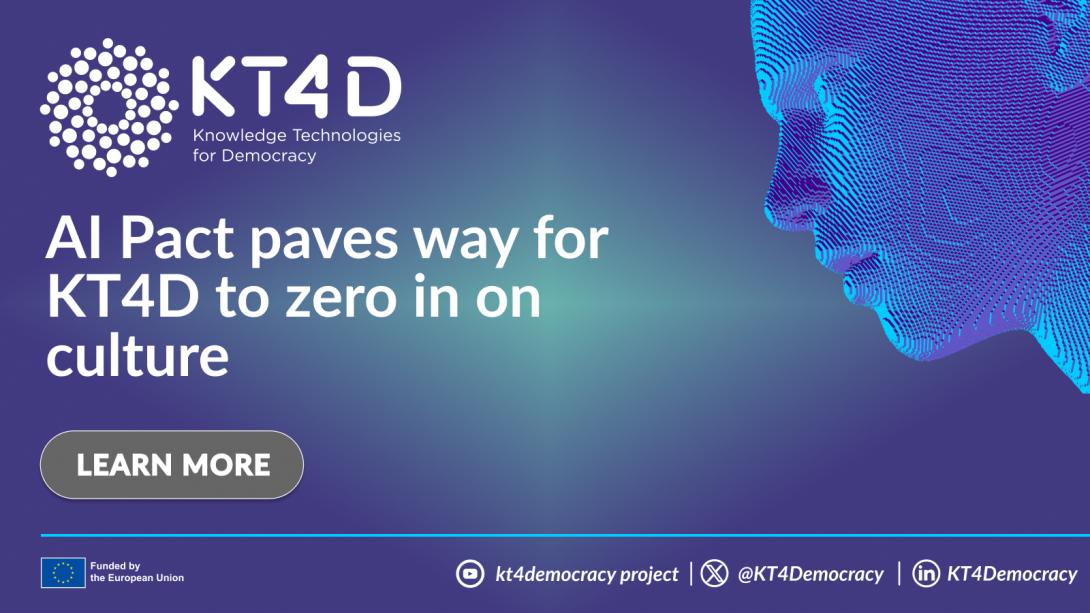AI Pact paves way for KT4D to zero in on culture
14, May, 2024

Background on the AI Act
The AI Act marked the first legal framework for artificial intelligence regulation of its kind. Once enacted, the introduction of this comprehensive legislation will place the European Union at the forefront of digital transformation and innovation at a global level. Essential for the digital strategy of the EU is to ensure that AI systems are developed, implemented, and governed with safety, transparency, and security in mind, protecting user vulnerabilities, while preserving innovation.
What is the role of the AI Pact?
Although the European Parliament adopted the AI Act in March 2024, not all of the measures will be fully implemented and enforced until 24 months after provisions come into effect. Instead of sitting back and waiting for legal deadlines to become official, the European Commission has developed the AI Pact, encouraging the voluntary adoption of AI Act provisions and increasing AI compliance best practices in this transitional period.
The AI Pact is centred around two pillars:
- Pillar I focuses on enhancing education and elevating knowledge through community engagement activities, like workshops and practical demonstrations organised by the AI Offices, ultimately fostering an ecosystem for exchanging AI best practices and how to prepare for future regulations.
- Pillar II empowers AI system developers, organisations, and other engaged actors to be proactive about compliance with voluntary commitments and pledges that disclose a roadmap for transparency and high-risk requirements, demonstrating an understanding of best practices, a recognition of AI safeguards, and how to build trustworthy AI technology.
How does this impact KT4D?
Although the AI Act does not address culture directly, the legislation itself and introduction of the AI Pact will have a compounding influence on the KT4D project. Through four distinct Use Cases, KT4D is taking a culture-centric approach to understand and respond to rapid AI developments, and this is a first step in that direction. The AI Pact that calls for transparency and accountability when developing and implementing AI technologies, combating misuse and misinformation, and preserving an open and secure environment for public engagement. With developers, companies, and end users now being legally obligated to be proactive when creating, understanding, and interacting with AI, then the work by KT4D to highlight and protect the cultural dimension of society from AI harms, as captured in the policy brief, will move to the forefront as a priority for decision-makers.